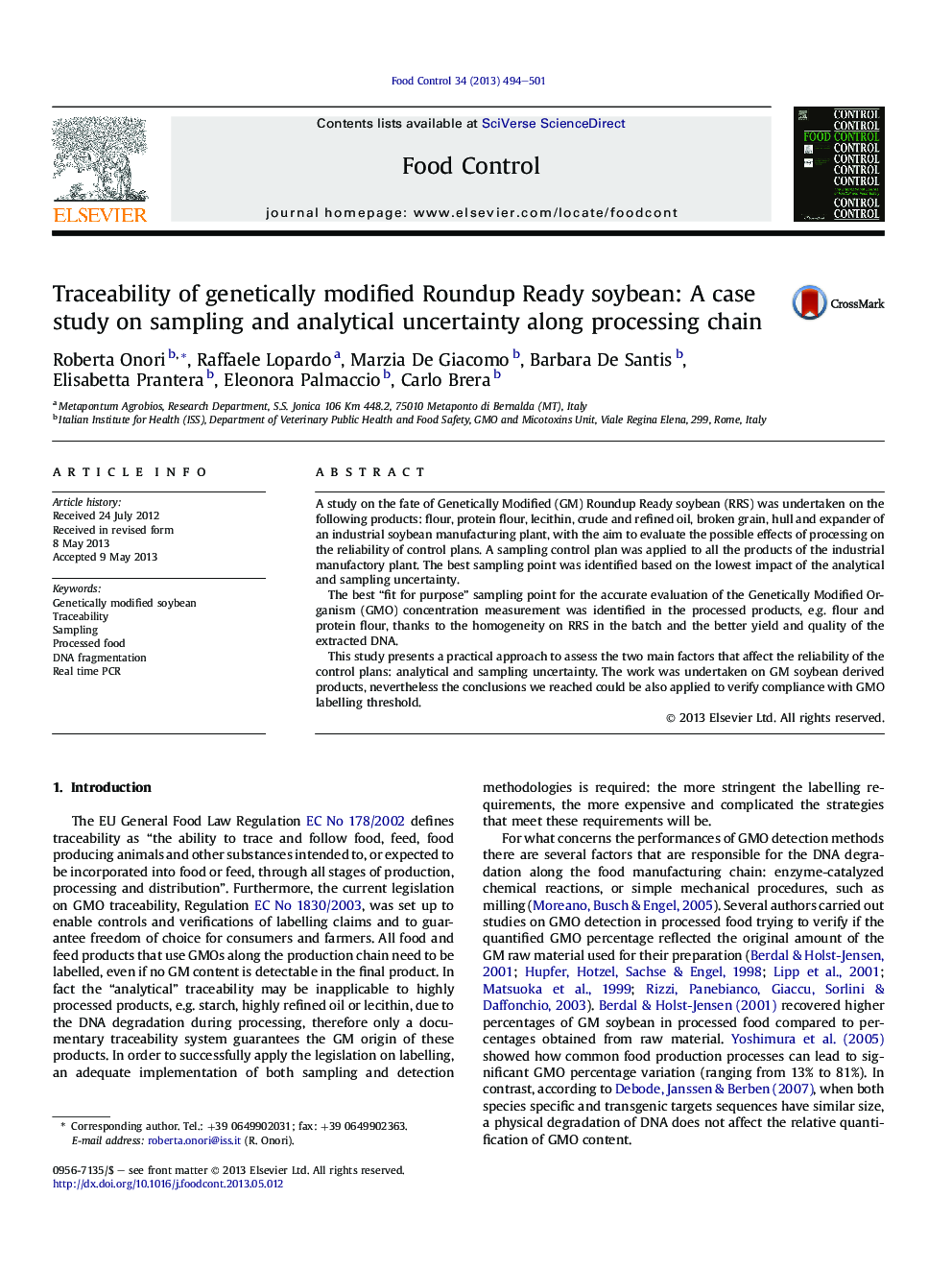| Article ID | Journal | Published Year | Pages | File Type |
|---|---|---|---|---|
| 6392345 | Food Control | 2013 | 8 Pages |
â¢Traceability of GM soybean was evaluated on products and by-products in an industrial manufacturing plant.â¢Evaluation of the influence of processing on GMO quantification, based on DNA yield and DNA quality parameters.â¢A practical approach for evaluating the best fit for purpose sampling point, based on analytical and sampling uncertainty.â¢Flour and protein flour showed a good balance between analytical and sampling error.â¢Grain, hull and expander showed higher sampling error while highly processed products, showed higher analytical error.
A study on the fate of Genetically Modified (GM) Roundup Ready soybean (RRS) was undertaken on the following products: flour, protein flour, lecithin, crude and refined oil, broken grain, hull and expander of an industrial soybean manufacturing plant, with the aim to evaluate the possible effects of processing on the reliability of control plans. A sampling control plan was applied to all the products of the industrial manufactory plant. The best sampling point was identified based on the lowest impact of the analytical and sampling uncertainty.The best “fit for purpose” sampling point for the accurate evaluation of the Genetically Modified Organism (GMO) concentration measurement was identified in the processed products, e.g. flour and protein flour, thanks to the homogeneity on RRS in the batch and the better yield and quality of the extracted DNA.This study presents a practical approach to assess the two main factors that affect the reliability of the control plans: analytical and sampling uncertainty. The work was undertaken on GM soybean derived products, nevertheless the conclusions we reached could be also applied to verify compliance with GMO labelling threshold.
